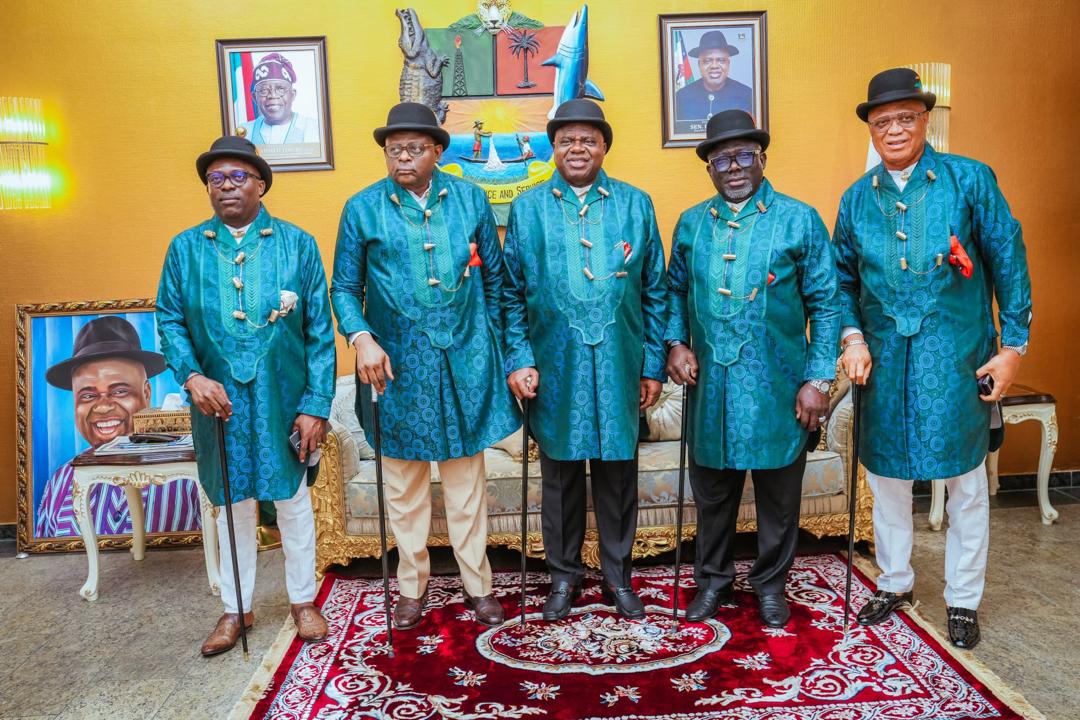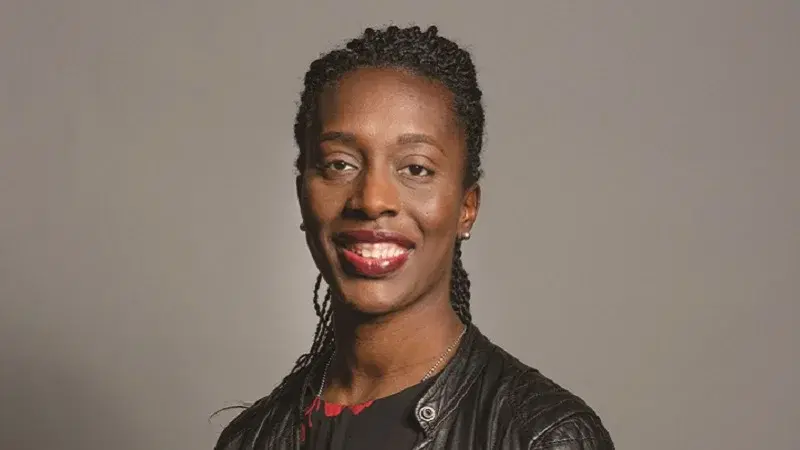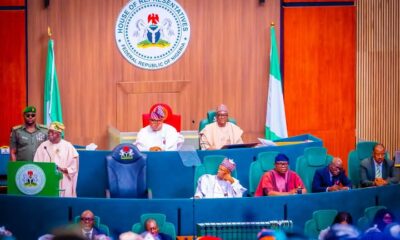News
NAPTIP Rescues 19,000 Trafficked Nigerians
As authorities continue to express concerns about illegal migration, the National Agency for the Prohibition of Trafficking in Persons has rescued no fewer than 19,000 trafficked persons since its inception in 2003, the Director of Intelligence and Public Enlightenment of the agency, Josiah Emeriole said.
The agency also said that about 32 persons had been convicted of various crimes related to human trafficking between January and May 2023.
lective with the support of the Swiss Government, managed by the Federal Department of Foreign Affairs.
According to him, all hands must be on deck to curb both illegal migration and human trafficking, adding that criminal elements were capitalising on the desperation of Nigerians to move out of the country.
He said, “When you talk about the volume of illegal migration in Nigeria if anybody tells you that there is genuine data, the person will be lying to you because irregular migration and trafficking are all clandestine crimes. What this means is that when they are happening, you may not know.
“But over the years, NAPTIP, for instance, on human trafficking, has rescued over 19,000 Nigerians. We have also intercepted many people from making this dangerous journey, and several people have been prosecuted. This year alone, between January and now, about 32 people have been convicted.”
Babandede said, “Trafficking is not only a matter of crime, good governance is a major issue. I could remember when we started NAPTIP, my young daughter, who is also now a mother used to ask me, do they try to pick people from London to Nigeria? And that was a big question for me because it doesn’t happen. I believe if we continue to have leaders who are committed to do good for the people, I am sure trafficking will reduce in Nigeria.
“Nigeria does not have laws to stop people from leaving. Some strict countries in the world have what we called exit visas, which means before you leave the country, you need to get a visa to leave. But Nigeria does not have an exit visa, which means that any immigration officer or law enforcement officer at the border must allow anyone who has a visa to leave the country otherwise you get a court case.”
According to him, migration should be regular and must be safer for everybody, adding that the world must negotiate a peaceful transfer of labour.
The Executive Director of WACOL, Prof. Joy Ngozi Ezeilo, expressed concern that one of every four Africans trafficked is a Nigerian and observed that the country is not doing enough in terms of prevention.
According to her, Nigeria is hugely affected as both a source country, a transit and a destination for human trafficking.
She said, “I believe we’re not doing enough prevention because prevention is key to curbing human trafficking and also addressing the root causes because if you look at the push and pull factors, you will find that poverty, youth unemployment, security issues, inequalities, exclusion, conflict, even corruption, all fuel and exacerbate human trafficking.
“One out of every four Africans trafficked is Nigerian, and in my role as UN United Nations Special Rapporteur on human trafficking for six years, I can’t imagine that in all the countries I have travelled to you must find a Nigerian in a trafficked situation.
“I feel that yes, we have NAPTIP and they are doing an excellent job within the little money available to it. But I think we need to scale up and we need to realize that this is one thing that gives Nigeria a bad name around the world.”
The Migration Adviser, Swiss Federal Department Foreign Affairs Peace and Human Rights Division, Christian Brugger, said that the importance of community-level engagement cannot be overemphasized.
He said the fight against Trafficking in Persons can only be won by a “Whole-of-Society” Approach, adding that traditional and religious leaders must lead the way in protecting their community members who look up to them.
News
Let’s Approach Regional Development Issues Differently – Fubara …As S’South Govs Host Fubara To 50th Birthday Celebration

Rivers State Governor, Sir Siminalayi Fubara, has sued for a change in the current approach adopted by South South Governors in their pursuit to achieve holistic regional development and economic prosperity.
The governor insisted on de-emphasis in vested individuals’ political interests while looking at the bigger picture of achieving enduring regional integration that will strengthen unity of purpose to change the trajectory of development in the region.
Fubara made the appeal during the meeting of Governors of South-South States, under the auspices of BRACED Commission, at the Bayelsa State Government House in Yanagoa on Tuesday.
This was contained in a statement by the Chief Press Secretary to the Governor, Nelson Chukwudi.
BRACED is an acronym for Bayelsa, Rivers, Akwa Ibom, Cross River, Edo and Delta.
He said: “I want to appeal that if we have to succeed in this drive, we need to keep our political differences aside and understand that the struggle, as at today, is for posterity, for the development of our region.
“It is really sad that in Niger Delta that is the economic base of this country, the construction of a road that you tagged ‘East-West Road’ could be an issue, that we need to beg, protest, and complain to get it fixed. I don’t think it is proper.”
Governor Fubara stated that it is not that the federal authorities do not understand that Niger Delta needs the road but quickly added that they have seen that even the people of the region do not take themselves seriously.
The governor said the moment Niger Delta people stopped playing to the gallery, and place value on themselves, outsiders will have no option than to accord the region and its people due regard.
Fubara said: “On my part, I want to say this: This is not the first time we are meeting. For me, I followed the course of the region meeting in a forum that we tagged “BRACED Commission.”
“BRACED Commission is also one of the bodies that was constituted at that time to support and work out development strategies for this region. But what I am seeing today is just limiting this meeting to only BRACED COMMISSION.
“We need to widen the scope where other leaders of the region should be part of the discussion of the development of the region, and I think this is the direction that will help the region.”
Reading the Communique of the meeting, the new Chairman of the Forum of Governors of South-South States, and Governor of Bayelsa State, Senator Douye Diri, said they support the Federal Government Tax Reform Bills, and urged President Bola Tinubu to extend the Value Added Tax (VAT) sharing percentages to oil and gas derivation.
He stated the Forum’s request to the Federal Government to urge relevant stakeholders and agencies to extend remediation of polluted environment ongoing in Ogoni land to other impacted communities and States in the region.
Governor Diri also said that the Forum resolved to establish a structural regional security network to enhance safety and security, foster stable Niger Delta region conducive for economic growth and prosperity.
Highlight of the event was the hosting of Governor Fubara to a surprise 50th Birthday celebration by the Governors of South-South States at the Government House in Yenagoa.
News
Fubara Lauds Tinubu For Setting Up Education Load Fund … Vows To Ensure Rivers Benefit Maximally From Scheme

The Rivers State Government has applauded President Ahmed Bola Tinubu for conceiving the idea of setting up the Nigeria Education Loan Fund (NELFUND) which has opened up opportunities for youths to acquire tertiary education irrespective of their financial status.
Rivers State Governor, Sir Siminalayi Fubara, gave the commendation while playing host to a delegation from NELFUND who came on an advocacy visit to the Government House in Port Harcourt on Tuesday.
Represented by his deputy, Prof. Ngozi Nma Odu, Governor Fubara said in developed countries it is common for people to go through school with loans which they sometimes pay all throughout their lives, noting that “for us, it is more accessible and more friendly because you would be required to pay back the loan two years after your National Youth Service.
“It is a win-win situation; it is a situation where the youths in Nigeria should not say because my parents are poor or passed away I cannot improve on my educational growth. This offers them a golden opportunity and I am glad you came for this advocacy.”
The governor urged NELFUND to intensify its advocacy to let the people know how they can benefit from it, adding that it is more important when talking about vocational institutions.
“If you look at the developed countries it is people that went to the vocational schools that make so much money, because it is pricey to get somebody to do anything, we need to instil this into our people, our youths, because people sometimes tend to look down on people that went to vocational schools, it should not be,” he said.
Fubara expressed delight with the NELFUND programme and assured that the State Government would do whatever it can to ensure Rivers State benefits maximally from the scheme.
In his remarks, the Managing Director and Chief Executive of NELFUND, Dr. Akintunde Sawyer, informed the governor that they were in Rivers State to seek the support of the State Government towards the loan, stressing that President Tinubu has directed them to ensure no Nigerian student who has the ability and desire to get educated at tertiary level is denied the opportunity due to lack of funding.
He explained that the scheme provides interest-free loans to students who apply, adding that these loans are not repayable until two years after their Youth Service when they must have gotten a job.
News
UK Appoints British-Nigerian As Trade Envoy To Nigeria

A British-Nigerian politician, Florence Eshalomi, has been appointed as the United Kingdom’s trade envoy to Nigeria.
Her appointment makes Eshalomi the second Nigerian to hold the position.
Confirming her appointment on X on Tuesday, she wrote: “It is an honour to have been appointed as the United Kingdom’s Trade Envoy to Nigeria.
“I’m looking forward to building on my close ties with Nigeria to promote a strong and flourishing economic relationship between our two great nations.
“I am looking forward to strengthening the UK’s relationship with Nigeria to explore shared growth and opportunities for both countries.”
Announcing the appointment in a statement on Tuesday, Jonathan Reynolds, the UK’s Business and Trade Secretary, said the decision was aimed at attracting investment into the UK and boosting economic growth.
“I’ve launched a new team of trade envoys who will use their experience, expertise, and knowledge to unlock new markets around the world for British businesses, attract investment into the UK, and ultimately drive economic growth,” Reynolds said.
Eshalomi, 44, is an MP representing the Vauxhall and Camberwell Green constituency.
She holds a Bachelor of Arts (Hons) in Political and International Studies with Law from Middlesex University.
-

 Featured4 days ago
Featured4 days agoFG Suspends Max Air Operations For Three Months Over Kano Incident
-
Nation4 days ago
Rivers CP Eulogises LG Boss Over Donation Of Vehicles
-
Politics4 days ago
Assembly Declares Lawmaker’s Seat Vacant Over Alleged Absenteeism
-
Business4 days ago
Aviation Stakeholders Raise Alarm Over NCAA Appointment Saga …Harp On Safety
-
Opinion4 days ago
Fubara @ 50: Golden Sparkles And Magic Bullet
-

 Featured4 days ago
Featured4 days agoTinubu Seeks Multifaceted Response To Terrorism, Other Security Threats
-
Nation4 days ago
N4bn Seized Assets, Arrest Of Kano Anti-Corruption Chair, Magaji, Raise Fresh Dust
-
Politics4 days ago
Celebrate Patriotic Citizens, Not Corrupt Politicians, Babalola Tells FG, States

